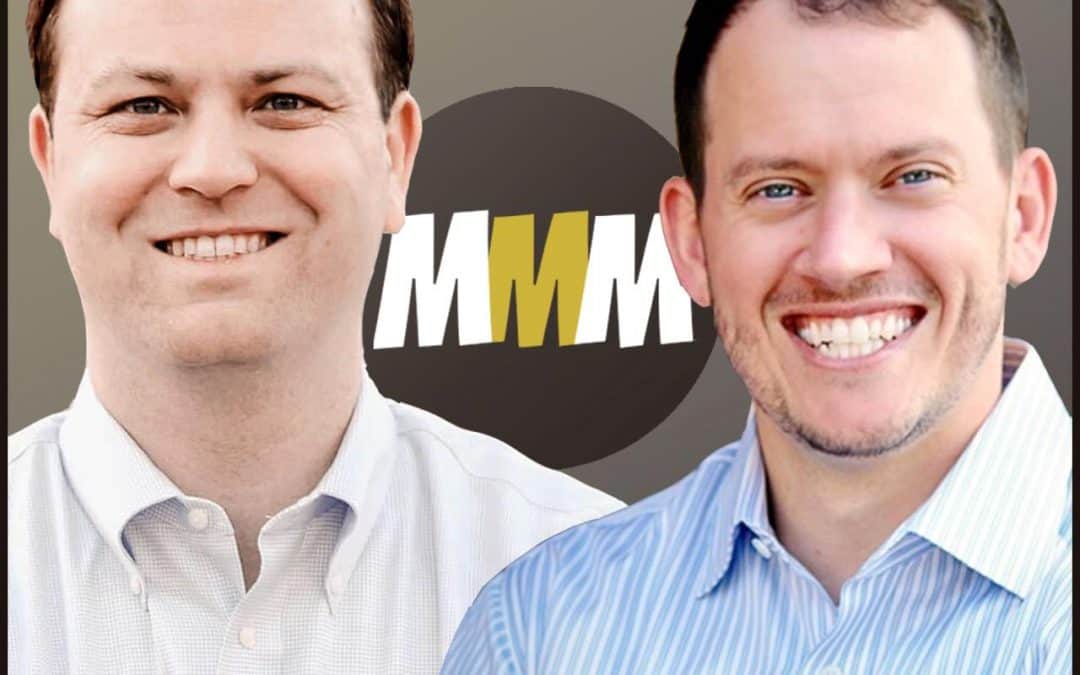Money Meets Medicine Podcast
MMM #23: For Better or For Worse: Getting on the Same Financial Page with Your Spouse
Doors close on Medical Degree to Financially Free tonight at midnight! They will remain closed for 6 to 12 months! Don’t miss out on what prior students have called a course that can change your life in just 5 weeks. The time to act is now. Click here to enroll in the course.
“He is a spender, and I am a saver. I just don’t know how to make sure we are saving enough toward the goals that matter most!” One of the most common questions I get involves how someone can get on the same financial page with their partner or spouse. After the Beta members took the MD to Financially Free course, many of them said this was no longer a problem in their marriage.
After you have the tools to get on the same financial page with your spouse, the big picture becomes the motivation behind the “how-to” for your financial life. That’s what this podcast episode is all about.
What You’ll Learn:
In this episode of Money Meets Medicine, “For Better or For Worse: Getting on the Same Financial Page with Your Spouse,” you’ll learn:
- Why it’s SO important to get along with your finances when it comes to money!
- How Medical Degree to Financially Free can help you work together with your spouse.
- How to figure out what you want with your life and finances.
- Why getting on the same page about money, may not involve talking a bout money.
- And more!
Quotes to Remember:
“They [Doctors] spend so much time taking great care of people and learning their craft, they don’t want the stress of figuring out most things on their own.”
“Expectations and reality have to be linked.”
“The way you get them (your spouse) on the same page, is not by talking about money.”
Resources from the Episode:
Medical Degree to Financial Free
This Episode’s Sponsor
This episode was brought to you by the course launch for Medical Degree to Financially Free. It is the only 5-week course built to help doctors create positive cash flow so that you can pay down your debt, invest for your individual goals, and find the financial freedom that you deserve. For more information, visit my affiliate link at financialresidency.com/MDFree. And, remember, doors close on June 10th. So, if you catch this episode after that time, you might have to wait another 6 to 12 months before the doors open again. Go to financialresidency.com/MDFree for more information..
Listener Question of the Week:
Today’s listener question comes from Becki Hitsman,
“I’d love some info on setting SMART goals for retirement when you don’t plan to quit working. Things to consider, etc.”
Each episode, we are going to start including listener questions as they are provided to us. So, if you have a specific question you’d like answered on the podcast reach out to us! Email [email protected] or [email protected]
TPP
You might also be interested in…
Following the Financial Crowd
Have you ever left a sporting event, following the crowd, and suddenly realized you were walking the wrong way? What if I told you this phenomenon has a name, and it impacts your money, too?
Understanding our own behavior when it comes to finance is essential because it helps us mitigate wrong-for-us decision making around money. Unless you know these roadblocks exist, you can’t do much to stop them from derailing your financial goals.
Last week, we shared why human behavior matters for our financial lives by taking a look at the first 5 out of 10 psychological phenomena that can (and do) affect your personal finance goals: greed, fear, ego/overconfidence, loss aversion, and analysis paralysis.
This week, we’re diving back into behavioral finance (one of our favorite topics) to share five more types of unchecked human behavior that can sabotage your journey to building the wealth you want.
Greed, FOMO, and Bad Investments
Despite our best intentions, certain emotions can keep us from building wealth. After many years arming physicians with the information they need to achieve financial wellness, I had a significant realization.
Information is one thing – behavior is another.
As the saying goes, money is 80% behavior and only 20% math.
Not only do I want to share important information about personal finance, I also want to help you recognize how certain behaviors can (and do) affect your finances.
Drawing from one of the classic books about investing, let’s go over five common behaviors that could be keeping you from achieving your financial goals.
How Doctors Can Get Good Financial Advice
Many doctors and high-income professionals hire financial advisors for any number of reasons. Either they’re too busy to handle their finances themselves, they don’t really know how to invest, or they want an expert on their side to make sure they’re on the right track.
So allow me to say from the start: I’m not against financial advisors, but I am against doctors (or anyone, really) being overcharged for bad advice.
There’s no shame in asking for help – you just want to get the help you need at a fair price.
You should be equipped enough to vet and evaluate your financial advisor so you’ll know whether they’re working well on your behalf. How can you be as confident as possible they’re acting in your best interest? This episode will help you find out.
Are you ready to live a life you love?
© 2021 The Physician Philosopher | Website by The Good Alliance





0 Comments